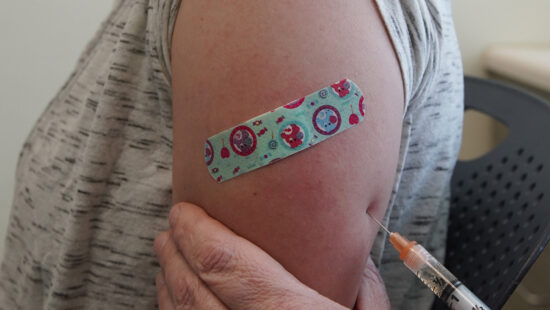Community
Declining SHARP survey responses mask alarming rise in teen drug use

Photo: Shutterstock
SUMMIT COUNTY, UT — Summit County’s Student Health and Risk Prevention (SHARP) survey, which began in 2003, serves as a crucial tool for understanding and addressing the behavioral health needs of local youth. Administered every two years to students in the 6th, 8th, 10th, and 12th grades, the survey covers a range of topics, including mental health, substance use, and school safety. According to Pamella Bello, director of behavioral health prevention in Summit County, the survey’s data is essential for informing prevention programs and securing funding through grants.
“There is no other survey that asks all these questions,” said Bello. “If we don’t have people taking this survey, we don’t have these answers.” Bello emphasized the importance of SHARP in guiding both local government and nonprofit organizations that serve the community. “For us to be able to service our community, we need to know what’s happening. And to get grants and funding, you need to show that you need it.”
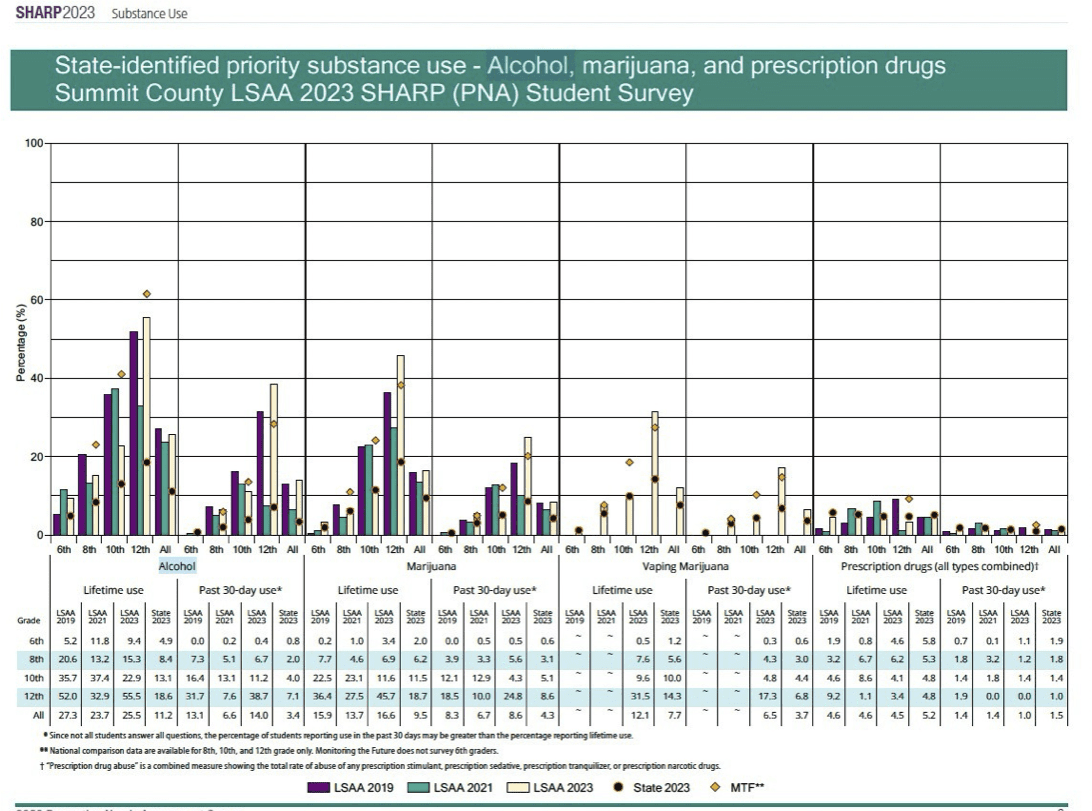
The SHARP survey asks questions about students’ experiences in school, such as whether they feel safe in certain areas like parking lots or bathrooms. It also delves into issues of mental health, substance use, and family life. One key question, for example, asks how often students share meals with their families. “We know that kids who eat with their families at least five times a week are more protected when it comes to making decisions about drugs, alcohol, and mental health,” Bello explained.
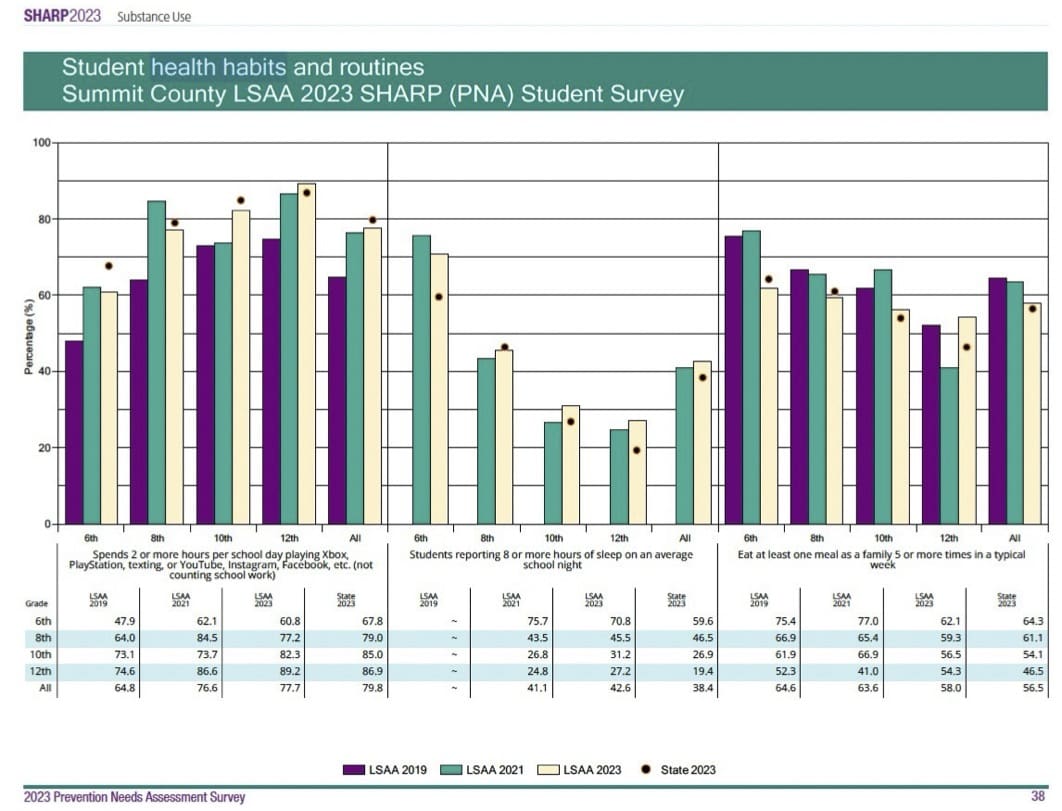
Despite its importance, Bello noted that participation in the survey has been declining in recent years. “In 2019, the participation was so low that the data wasn’t usable,” she said. “We’ve had really bad participation for the last three surveys.” To improve participation, Summit County has taken steps to make it easier for parents to consent to the survey, including adding the consent form directly into the school registration process.
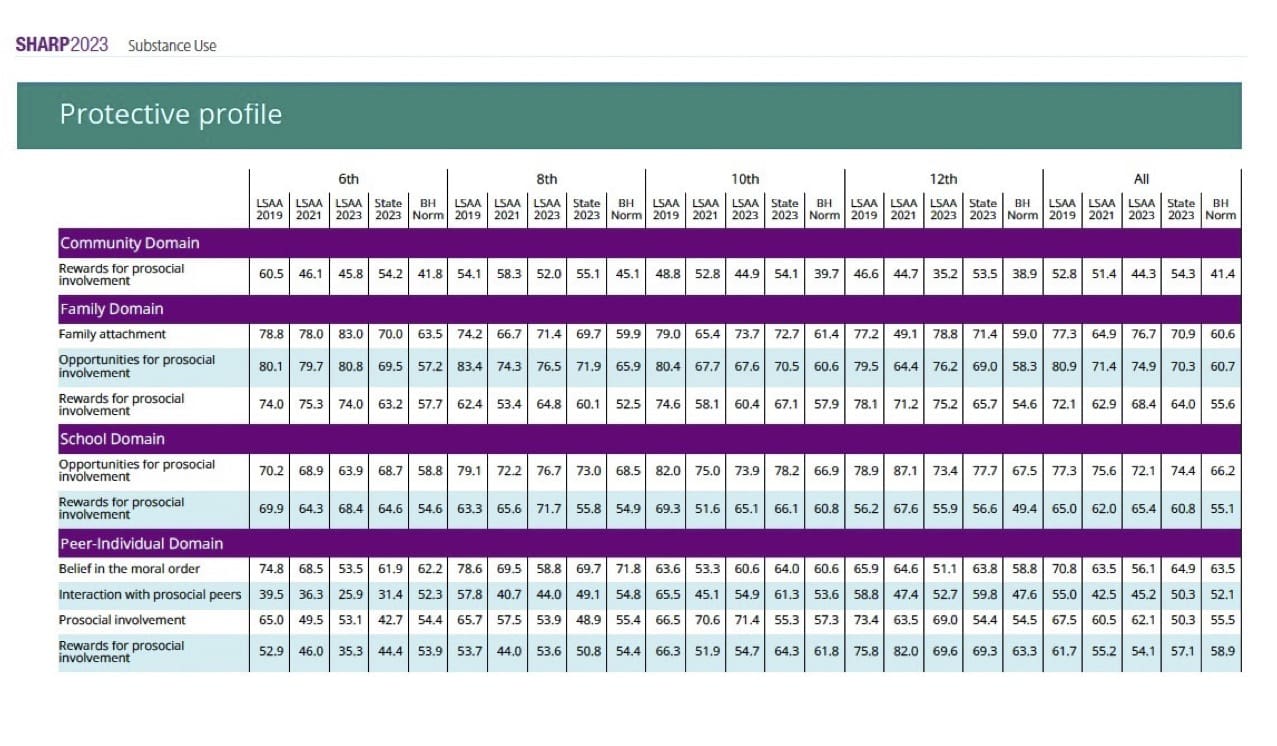
Bello also addressed concerns that some parents have had about the sensitive nature of the questions, particularly those related to suicide and drug use. She emphasized that there is no evidence to suggest that asking students about these topics leads to harmful behavior. “There is research behind this,” she said. “Asking kids about suicide doesn’t make them want to commit suicide. In fact, it helps them get it out and talk about it.”
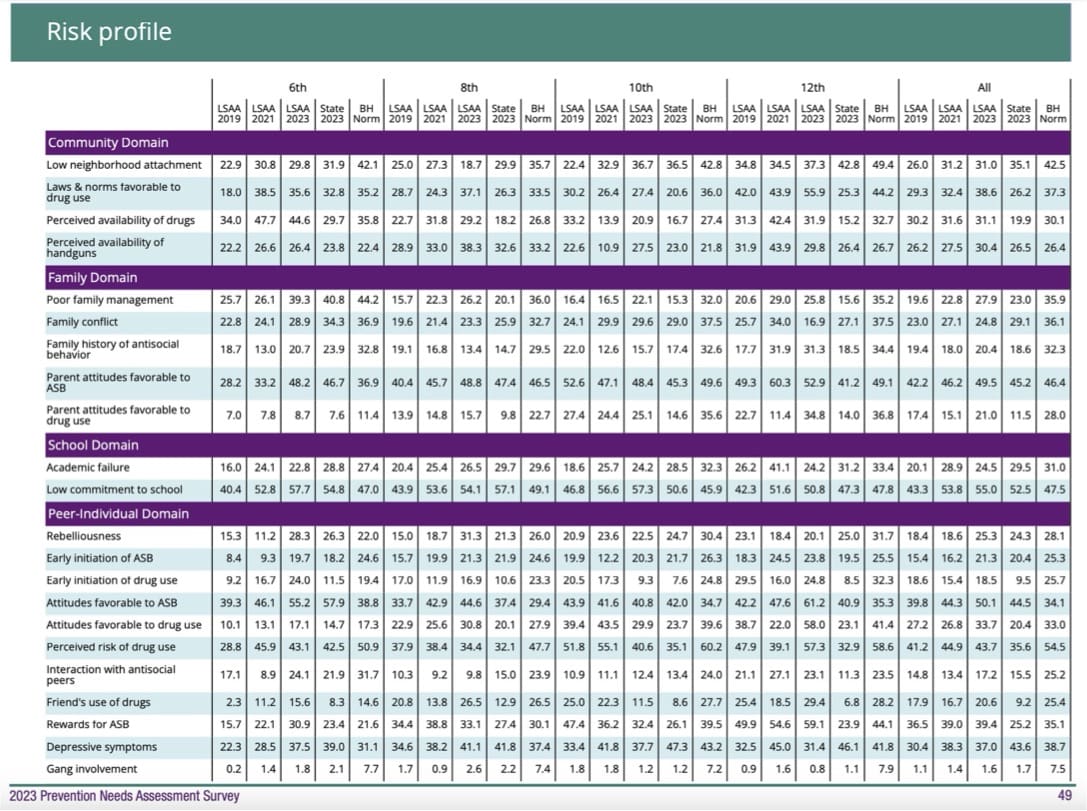
In addition to the health department’s use of the data, local nonprofits rely on SHARP results to secure funding for their programs.
“Organizations like Big Brothers Big Sisters depend on this data to write grants,” Bello explained. “If we don’t have this information, it becomes much harder to provide services to our community.”
Bello is hopeful that increased awareness will lead to better participation and a more accurate understanding of the challenges facing Summit County’s youth. “We need to have a voice from our kids,” she said. “If they tell us what’s happening, then we can bring services to them and make sure we’re addressing their needs.”

















